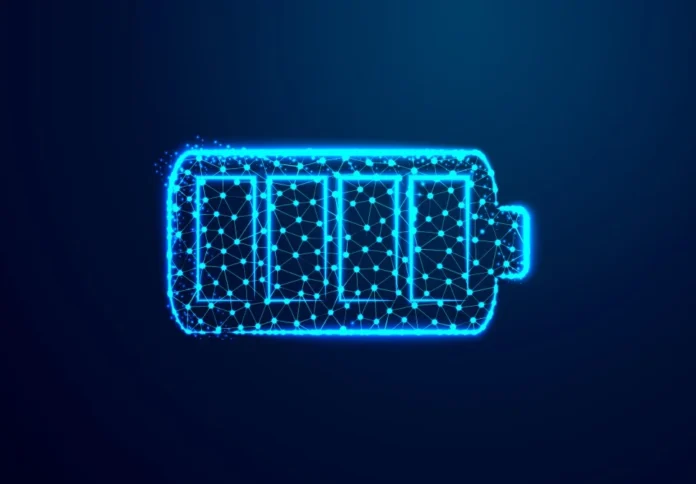Lithium is a captivating chemical element. As a soft, silver-white metal belonging to the alkali metal group, it possesses unique qualities. Its significance lies in the realm of lithium-ion batteries, essential powerhouses fueling ubiquitous portable electronic devices like smartphones, laptops, and tablets.
Lithium-ion batteries are a key component of renewable energy systems, such as solar and wind power, which are essential for the transition to clean energy, which also powers electric vehicles (EVs) and energy storage systems, harnessing their exceptional energy density and efficient charge storage capabilities.
The development of domestic Lithium reserves in India could contribute to its efforts to transition to a more sustainable economy.
For a long time, India has been dependent on importing Lithium from other countries, mainly China. However, this situation may change soon, as India has recently announced the discovery of its first major Lithium reserves in Jammu & Kashmir (J&K) in February 2023.
India’s Lithium reserve
The Geological Survey of India (GSI) which conducted 19 significant projects in the past
five years to explore and study “Lithium and associated elements”; across various states in India, including Andhra Pradesh, Arunachal Pradesh, Bihar, Chhattisgarh, Himachal Pradesh, Jharkhand, J&K, Madhya Pradesh, Meghalaya, and Rajasthan have announced roughly 5.9 million tonnes of inferred lithium resources categorized as G3 level or ‘preliminary survey’, in the Reasi district of J&K.
The successful extraction of this reserve in J&K holds the potential to provide a substantial impetus to India’s ambitious plans for expanding electric vehicle adoption. It has the power to catapult the nation to a formidable position, characterized by self-reliance and resilience, achieving both its environmental and economic goals. According to Amitabh Saran, co-founder of Altigreen Technologies, “If all goes well, it would take at least 4-6 years” to commercialize lithium reserves in J&K.

If these estimates of 5.9 MT of lithium reserves are verified and added to the global ranking, India would rank second in the world after Chile with a 20.9% share, overtaking Australia.
If the estimates of 5.9 MT of lithium reserves are verified and added to the global ranking, India would rank second in the world after Chile
These 19 projects where GSI have graduated from G4-G3 and one to G2, have put India on the cusp of more major lithium discoveries that could have significant implications for India’s energy security, economic growth, environmental protection, and geopolitical influence in the global market.
EV road-map
India has set an ambitious target to accomplish a remarkable transformation in the transportation sector. The aim is to achieve a notable 30% penetration of EVs in private cars, 70% in commercial vehicles, and an astounding 80% in two and three-wheelers by 2030.
India is also actively seeking avenues to reduce its reliance on imported lithium, which has seen a robust increase in the last few years. In the fiscal year 2020-21, the country imported lithium metal valued at ₹173 crore and lithium-ion batteries worth ₹8,811 crore. Notably, over 95% of these imports originated from Hong Kong and China. In the subsequent fiscal year, FY22, imports for lithium-ion reached ₹13,673.15 crore, while imports for lithium were valued at ₹165.08 crore. India’s import expenditure for lithium-ion products, stood at ₹18,554.12 crore during the April-January period of FY23, with around 76% of these imports originating from China.
Challenges of lithium in India
However, it is crucial to acknowledge that lithium is a limited resource, highlighting the utmost significance of sustainable extraction and responsible management practices. These measures are essential to meet the increasing demands of industry while minimizing any potential negative environmental consequences.
“One of the challenges that India faces is how to transport Lithium from the remote and rugged regions of Ladakh to the rest of the country”
Transport
One of the challenges that India faces is how to transport Lithium from the remote and rugged regions of Ladakh to the rest of the country. Ladakh is a high-altitude desert with harsh climatic conditions and limited road connectivity. It also has a huge potential for renewable energy generation, especially solar and wind power. To overcome this challenge, India could leverage its renewable energy resources to power the lithium extraction and processing plants in Ladakh and use a dedicated transmission line to export the excess electricity to the national grid. This would not only reduce the carbon footprint of lithium mining but also create a new source of income and employment for the local population.
Exploration
In addition, there are significant challenges India faces in developing a robust exploration and production policy for the extraction and commercial sale of lithium and other minerals. In this regard, India can take a cue from China, which despite holding only approximately 7.9% of the world’s lithium reserves by the end of 2020, as revealed by BP’s Statistical Review of World Energy 2021, has managed to assert dominance by controlling an estimated 60% of the global processing and refining capacity. This underscores China’s remarkable ability to leverage its refining capabilities to play a pivotal role in the lithium supply chain, shaping the global market dynamics.
Investment
Further, India would also require investments in research and development, infrastructure, and policy support to make lithium-based technologies affordable and accessible to the masses. In this context, India and the Australian government have entered into an agreement aimed at fostering collaboration in the mining and processing of critical and strategic minerals, including lithium. Besides, a strategic partnership has been established with Argentina’s state-run mining enterprise to facilitate the exploration and production of lithium in the region.
India must be mindful of the negative impacts of lithium mining on water resources, land use, and carbon emissions. Policymakers need a clear roadmap for sustainable and responsible lithium extraction, ensuring clean energy benefits without compromising human rights and ecological integrity.





